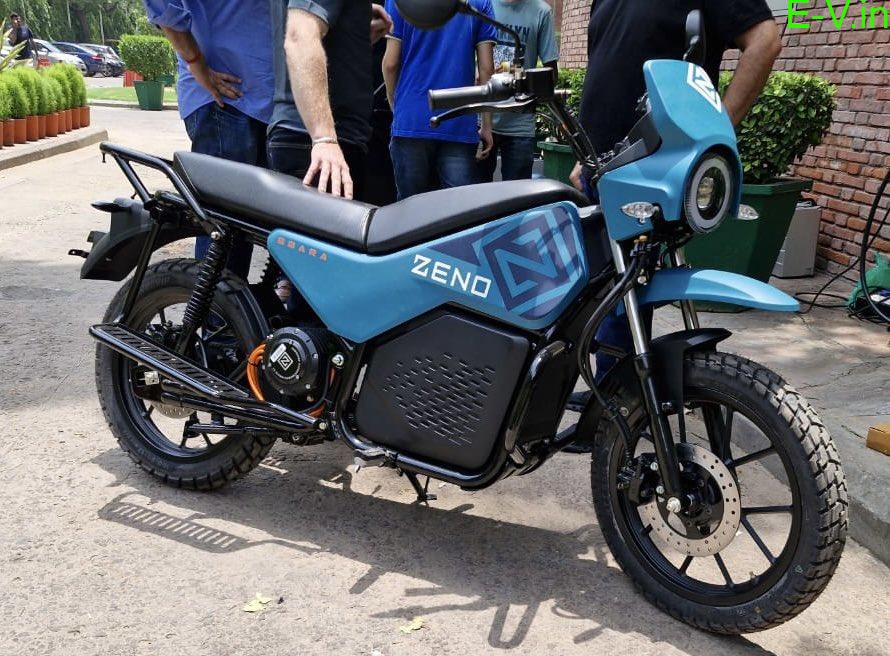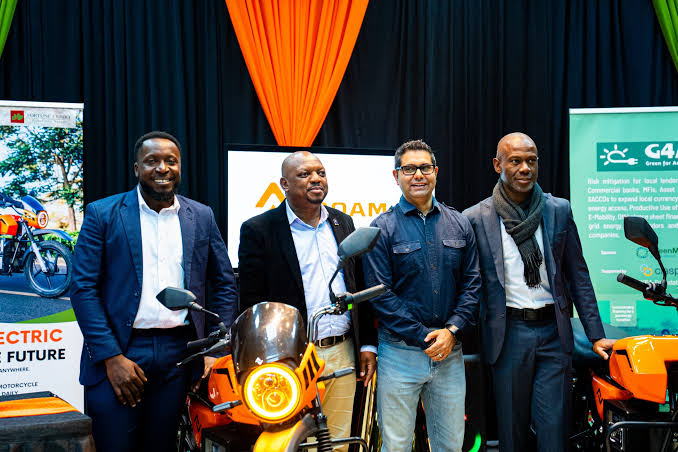Zeno, a global electric mobility startup led by former Tesla executive Michael Spencer, has officially entered the Kenyan market. The company launched its first electric motorbike, the Zeno Emara, designed for East Africa’s rugged roads and growing transport needs.
With Kenya as its entry point, Zeno plans to reshape local mobility through affordable e-bikes, swappable battery technology, and a rapidly expanding charging network. The launch marks a significant step toward accessible, clean transportation in the region.
Zeno unveils Zeno Emara electric motorcycle in Kenya
Zeno’s first public rollout in Kenya includes the Emara—an all-electric sport utility motorcycle engineered for commercial riders, families, and transport operators. With a 250kg load capacity and 190mm ground clearance, the Emara is tailored for the continent’s rough roads and heavy-duty transport needs.
“We’ve reimagined what an electric motorcycle should be,” said Michael Spencer, Zeno’s CEO. “Our customers need vehicles that last all day, cost less to run, and outperform petrol bikes.” According to the company, the Emara reduces operating expenses by 30–50% compared to fuel-powered bikes.
Zeno is rolling out two assembly hubs and nine showrooms across East Africa, with Kenya as its primary entry point. To support operations, it has already deployed over 40 charging stations connecting Nairobi to upcountry towns like Nyeri and Nanyuki. The plan is to expand to 120 charging points in Nairobi and over 500 across Kenya within the next 12 months.
Swappable batteries and pricing strategy drive demand
One of Zeno’s standout features is its 3-mode charging ecosystem, which includes battery swapping, home charging, and fast public chargers. Instead of waiting to recharge, users can instantly swap batteries at vending machine-style stations. This innovative model allows Zeno to offer bikes at a lower upfront cost.
To boost affordability, Zeno is offering the Emara at a starting price of KSh 189,000, inclusive of KSh 15,000 worth of energy credits. Financing options start at just KSh 290 per day. “More than 15,000 people have joined the waitlist across Kenya, Uganda, and India,” said Spencer. “The demand has been incredible.”
The battery units aren’t just for transportation. Riders can power induction cookers and charge electronics with them at home, helping bridge gaps in household energy access—a crucial benefit in regions with unreliable electricity.
Backed by millions and designed for Africa
Zeno’s roots trace back to a $9.5 million seed round closed in September 2024. The funding—led by Lowercarbon Capital and Toyota Ventures—was aimed at building the company’s battery-swapping infrastructure and Africa-ready vehicles. The vision was clear: solve for energy and transport together in emerging markets.
Unlike many electric bike makers that simply retrofit existing scooters, Zeno designed its motorcycles from scratch to outperform the typical 150cc gas bike. “Our customers are seeing their take-home income jump by up to 40%,” Spencer said, pointing to early adopters in Kenya’s smaller towns.
With a focus on cost efficiency and green infrastructure, Zeno’s East African debut positions it as a major player in Africa’s electric mobility future. Deliveries in Kenya have begun, and expansion into Uganda, Tanzania, and India is expected later this year.















